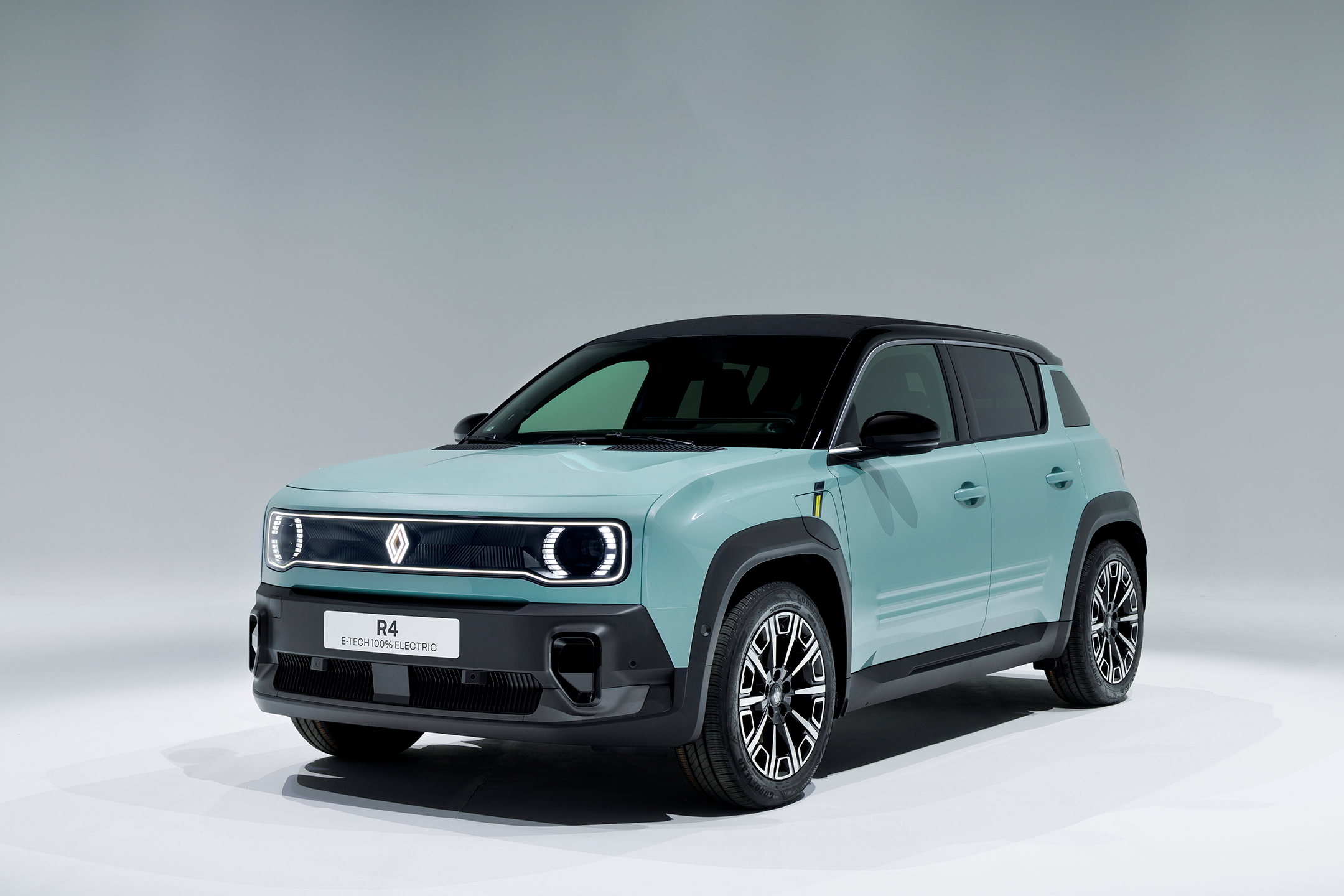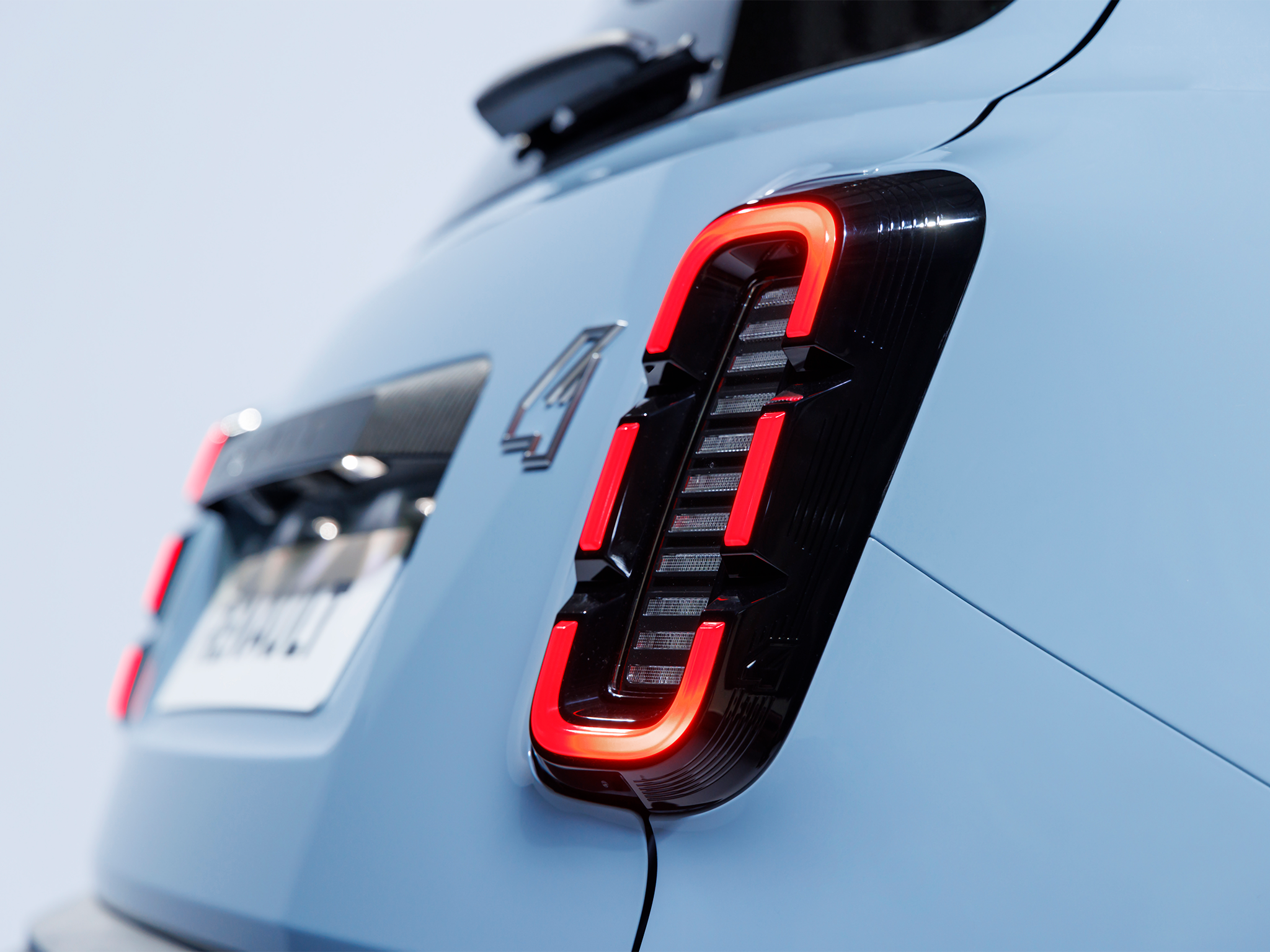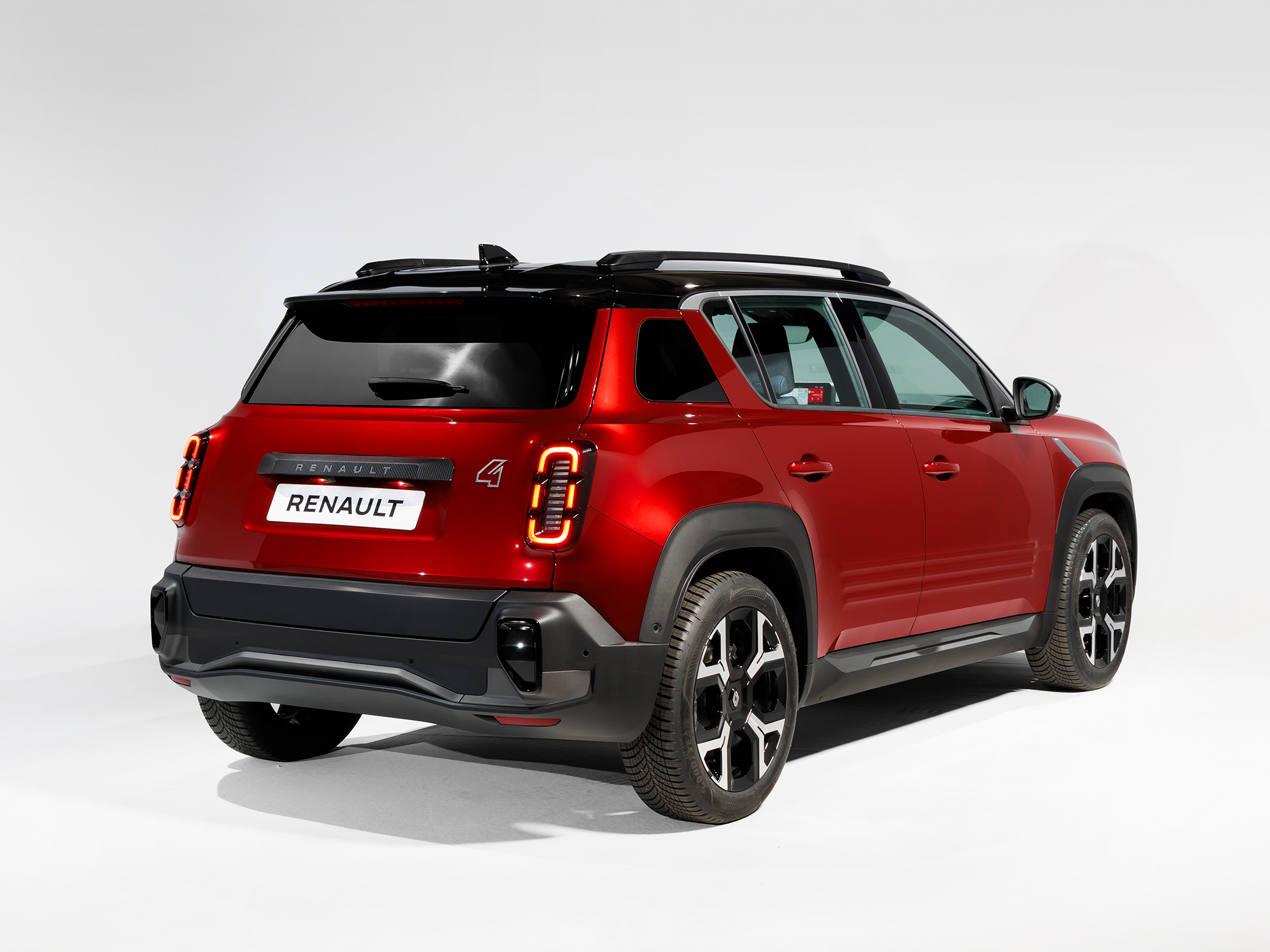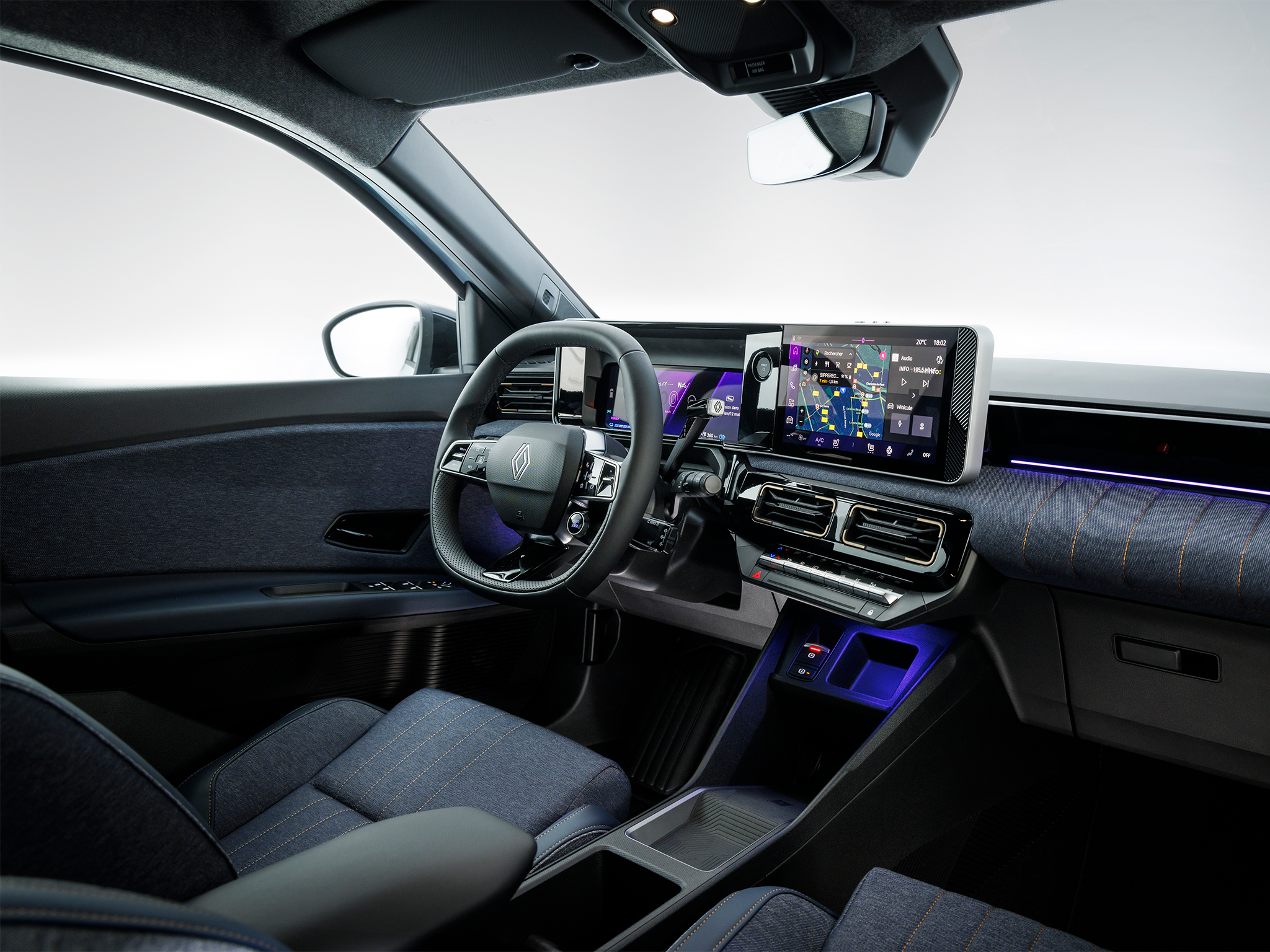The reborn Renault 4 is the latest EV in the French car maker’s retro-revolution
Renault’s big reveal at the Paris Motor Show is 60s-inspired electric car going on sale next year

Renault’s retro-inspired line-up is growing quickly. The new Renault 5 launched to great acclaim and bulging order books, a new Renault Twingo was revealed and the Renault Scenic’s switch from MPV to SUV has been successful.
You could say the “Renaulution”, a phrase coined by CEO Luca de Meo when he joined Renault in 2020, is going well.
The latest model to join Renault’s retro ranks is the Renault 4, revealed in production form at the Paris Motor Show. It harks back to the original Renault 4 from the sixties, a car designed to take advantage of the societal changes of the time with space for all the family to go exploring different places. It was Renault’s people’s car – its answer to the Beetle and 2CV.
The new Renault 4 follows similar themes, and will follow the Renault 5 into showrooms next year. As is the way in the car industry, much of what you find on the Renault 5 can also be found in the Renault 4, but wrapped up in a similarly retro but more practical package.
So, the Renault 4 also uses the AmpR Small platform with a choice of 40 or 52kWh batteries for maximum ranges of around 190 and 250 miles, as well as all the advanced tech that enables these models to look forwards as well as backwards.

That includes bi-directional charging that would potentially let the Renault 4 power your house, plus built-in Google for seamless integration with your Google life and home, and even Renault’s digital assistant Reno that can open and close the windows for you with a wave of its avatar hand.
As with the Renault 5, there will be fast charging available on both batteries that will take you from around 15 to 80 per cent charge in 30 minutes.
The Renault 4 is slightly bigger than the 5, but with more versatility. It starts with a bigger boot at 420 litres, a low-loading sill, wide-opening tailgate and plenty of clever storage areas including under-floor storage for charging cables. There’s the potential for much more space and longer loads with rear and front passenger seats that will all fold flat, too.
The extra length (the car measures just over four metres) and longer wheelbase of the Renault 4, plus the increased height, give the car a more spacious feel inside than the 5. It’s enhanced by a bigger glass area, too. There’s also decent storage room for passengers’ things in the back of the Renault 4 – unlike in the 5.
Renault describes the 4’s design as ‘retro-futuristic’, with plenty of nods to the original car brought up-to-date. The front grille is a prime example; its shape mimicks the original, but is made from a single piece of plastic and with a thin illuminated light strip running around the edge. The large Renault diamond is also illuminated, while the round headlights sit within the new grille.

In profile the new Renault 4 is true to the original too, with sculpted stripes on the lower section of the bodywork and the rear quarterlight that still looks slightly awkward, as it did back in the sixties.
Again, the rear lights are a nod to the past, split into three parts but using the very latest LED lighting technology. As with the Renault 5 there’s a host of styling options – inside and out – to personalise your Renault 4 (and, no doubt, push the price up too). Renault says there are 670 combinations of Renault 4 to make sure you’re unlikely to pull up next to an identical one at the traffic lights.
You can opt for a colour called Hauts-de-France green, which is basically the same as 1961’s Île-de-France blue, updated with a pearlescent finish. There’s even a retro, roll-back canvas roof option available.
As well as the same battery tech underneath the 4 as the 5, it uses the same multi-link rear suspension – usually found on bigger, more expensive cars – and a tweaked version of the front suspension, too. We were impressed by the ride comfort of the new Renault 5 when we drove it and the 4 is said to be further optimised for comfort, with slightly more relaxed steering and a tight turning circle.
Performance is also slightly more relaxed in the 4 than the 5 with the fastest 0-62mph time being 8.5 seconds, half a second slower than in the equivalent 5.
There are special settings to increase grip in snowy conditions, while unlike the Renault 5, there will also be true one-pedal driving with the electric engine braking kicking in to maximise the return of energy to the battery when you lift off the accelerator.
Twin 10-inch screens sit on the dash for driver information and infotainment, the latter is Google-powered with voice control that includes ChatGPT support. Renault’s OpenR link includes an app to control everything from charging to setting the air con before you get in.
Another benefit the Renault 4 gets over the 5 is an optional premium Harman Kardon sound system with nine speakers and sound modes created by French synth-wizard Jean-Michel Jarre.
There are also plenty of big-car safety features – a total of 26 driving aids on board – as well as a digital safety coach and safety score system to help you improve your driving. There’s a strong sustainability story, too, with plenty of recycled materials in the car and an overall recyclability rate of 88.6 per cent.

As with the Renault 5, there will be three trim levels for the Renault 4 initially, starting with Evolution, Techno and Iconic, the first of which will only be available with the smaller 40kWh battery. A tennis-inspired Roland Garros version should eventually top the range, as it will on the Renault 5.
There’s not even a hint of pricing for the Renault 4, but we know it will sit somewhere between the Renault 5 and all-electric Renault Mégane. We’d estimate a starting price of between £27,000 and £28,000, with the same £2,000 increase per trim level and another £2,000 for the bigger battery. That means a top-spec Iconic model with a 52kWh battery could cost around £34,000, before you start adding any of the tempting personalisation features.
First deliveries of the Renault 4 won’t be far behind the 5. Customers should get their first 4s sometime in the summer of 2025.
Join our commenting forum
Join thought-provoking conversations, follow other Independent readers and see their replies
Comments


Bookmark popover
Removed from bookmarks